Impact Story
Pemba
Her City Pemba is Fostering Inclusion and Cohesion among internally displaced people (IDPs) and Host Communities in the Mahate Neighborhood, Mozambique. The upcoming Mahate Action Plan will transform this neighborhood, with a special focus on women and girls. In Pemba, Her City brings tangible change, one neighborhood at a time. Her City fosters locally-owned infrastructure, by empowering local communities, both IDPs and Host Communities.
Facts
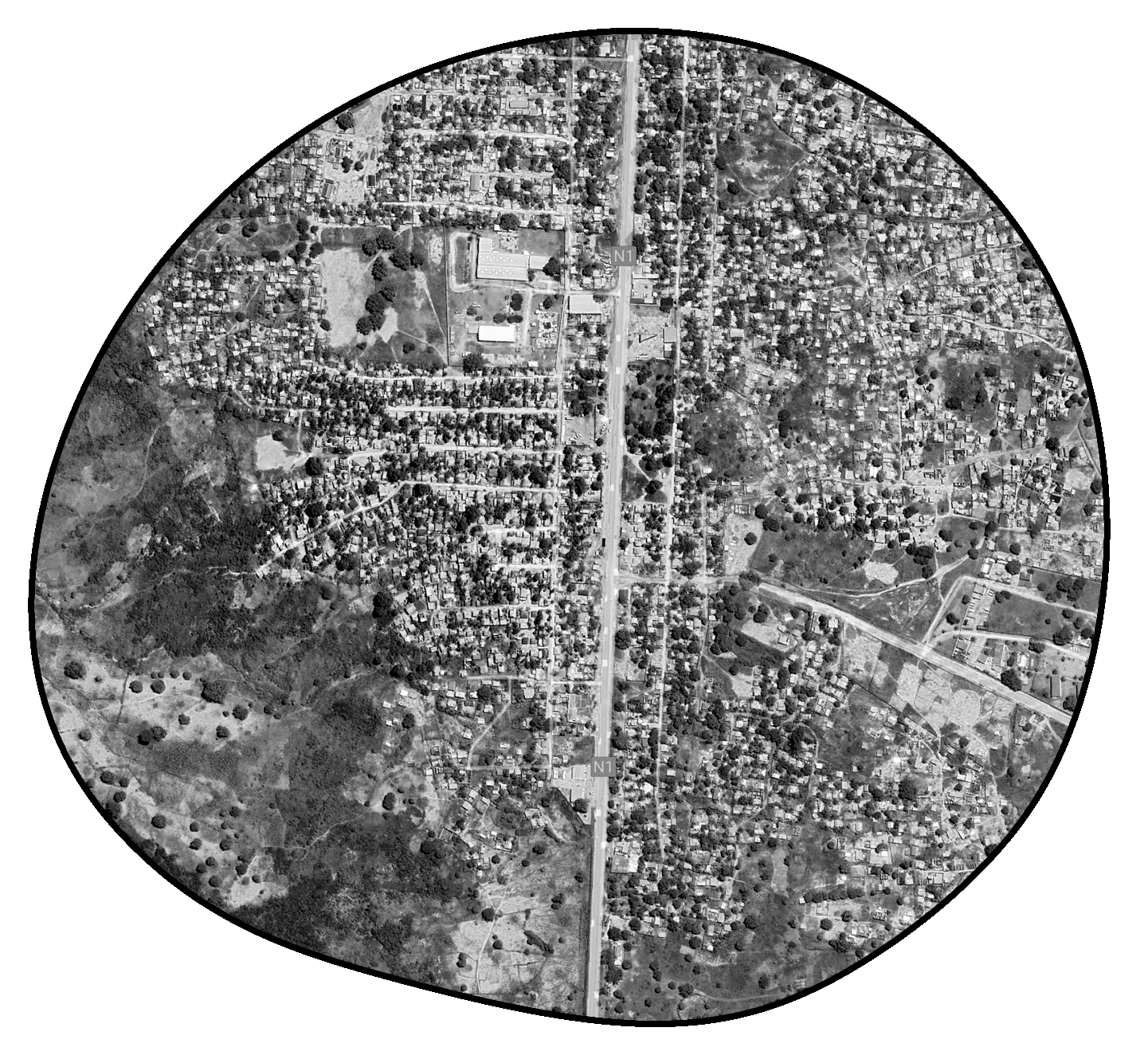
Category: Municipality and private sector
Location: Mahate neighbourhood, Pemba, Cabo Delgado Province, Mozambique
Time: July 2022 – ongoing
Partners: UN-Habitat, International Organization for Migration (IOM), High Commission of Canada in Mozambique
Participants: Activists, women and girls from Mahate neighbourhood, women and men from foster care and relocated families
Her story
Challenges
Local authorities in Northern Mozambique are dealing with rising challenges due to the massive population increase in urban areas. Mahate neighbourhood, with a total population of 7,344 inhabitants and hosting an estimated 14,853 IDPs residing in peri-urban residential and commercial settings along the main way connecting the city center in the first periphery of Pemba.
IOM conducted a household level assessment with participants from both the host community and IDPs under their Protection-Mental Health and Psychosocial Support program. The assessment underscores the multifaceted challenges faced by both host and displaced communities in Mahate, highlighting the importance of targeted interventions to address immediate needs and foster long-term resilience and well-being.
Solutions
Through community walk, Her City Program identified 52 potential areas for intervention across two neighbourhood units. Women and girls from the community actively participated in the mapping of public spaces, highlighting concerns such as limited transportation access, inadequate infrastructure, and environmental hazards. In response, the project proposed a range of solutions, including:
– Implementation of speed reduction mechanisms and pedestrian crossings to improve road safety.
– Expansion of the water supply network and creation of cooperatives for waste management to address sanitation challenges.
– Introduction of clean-up days and measures against soil degradation to mitigate environmental risks.
– Consultations on street lighting and partnership with local merchants to enhance nighttime safety.
Opportunities
The Mahate project doesn’t involve new neighborhood design or immediate action after the participatory assessment but serves as an important pilot. Its findings have informed the Pemba Urban Profile and Gender-Sensitive Participatory Diagnosis, providing key insights for the Mahate Action Plan.
These processes, which involve collaboration between local communities and municipal authorities, guide the prioritization, design, and implementation of interventions. Community participation, including that of Urban IDPs and Host Communities, fosters ownership of infrastructure developments. To ensure success, local technical assistance mechanisms must be established to align interventions and build capacity.
Scaling up these initiatives is vital for a holistic urban development approach, promoting collaboration between neighborhoods to strengthen the urban fabric and enhance resilience.
Impact
- Improved engagement of communities in participatory and gender-inclusive planning and management at municipal and neighbourhood scale and awareness rising with specific social services provision.
- Increased living conditions for vulnerable women and girls within host communities and IDPs at the neighbourhood scale with assisted self-construction of prioritized community infrastructure “including on the job” training and employment / entrepreneurship opportunities.
- Increased institutional capacities of local authorities and livelihood of communities and ensure the sharing of experiences, as well as systemic monitoring and evaluation to extract lessons learned and formulate guidelines for scaling-up.
Lessons learned
The Pemba project is unique due to the coexistence of host communities and displaced people, highlighting the need to address the specific challenges of both groups. The IOM’s psychological study, along with demographic data, offers insights into stress and wellbeing issues, which should inform inclusive urban management strategies.
The Mahate Action Plan will include detailed mapping of public spaces to better understand urban dynamics. However, to address population growth, the analysis must also extend to key neighborhoods like Josina Machel, Eduardo Mondlane, and Chuiba.
Results
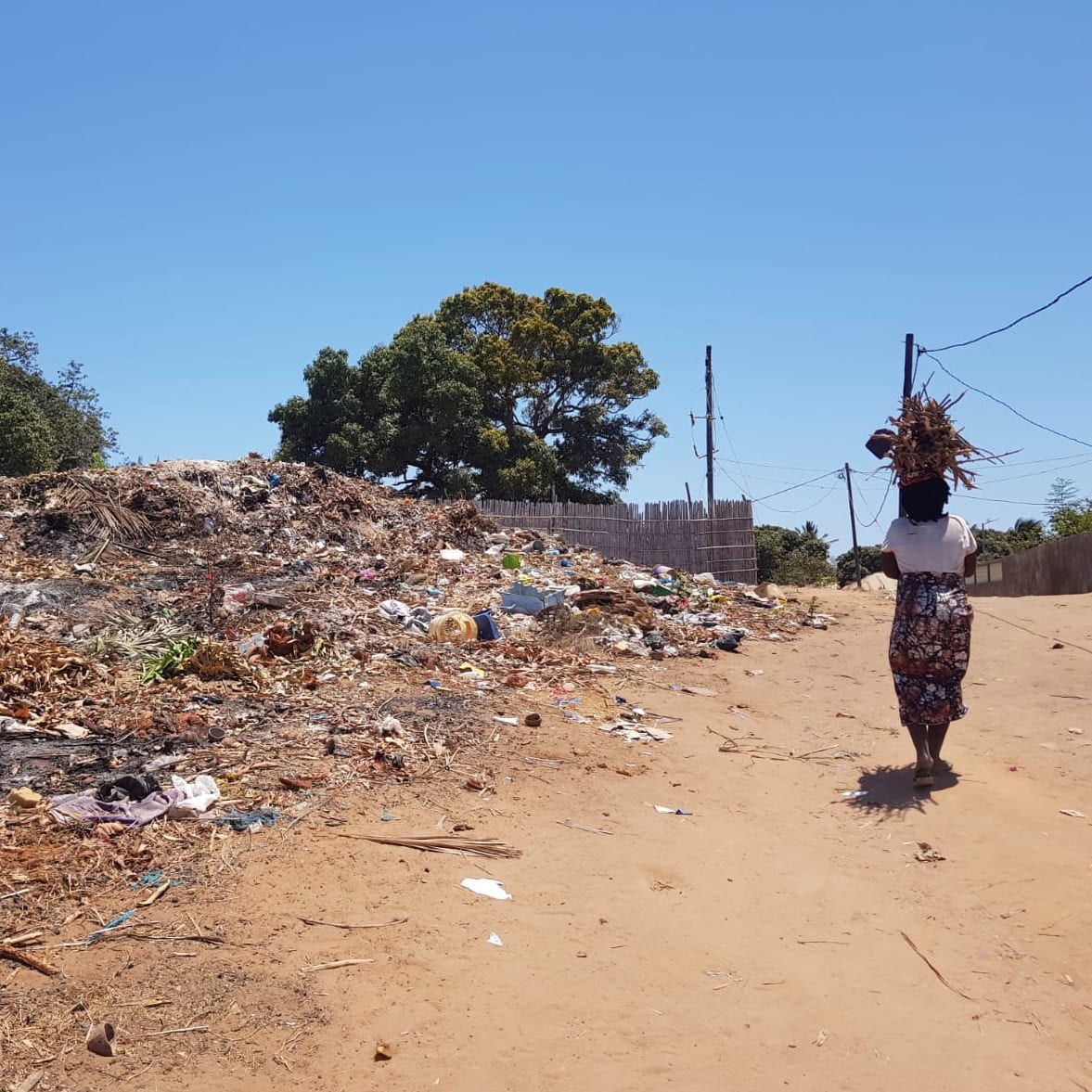
Block 1: Stakeholder engagement
The assessment involved key stakeholders, including the Municipality of Pemba, UN-Habitat, and local communities. Trained community workers, already active in Pemba, conducted the household-level assessments using a tailored Protection-MHPSS questionnaire, which focused on Profiling, Protection, and MHPSS. This stakeholder engagement ensured a comprehensive understanding of both the displaced and host communities.
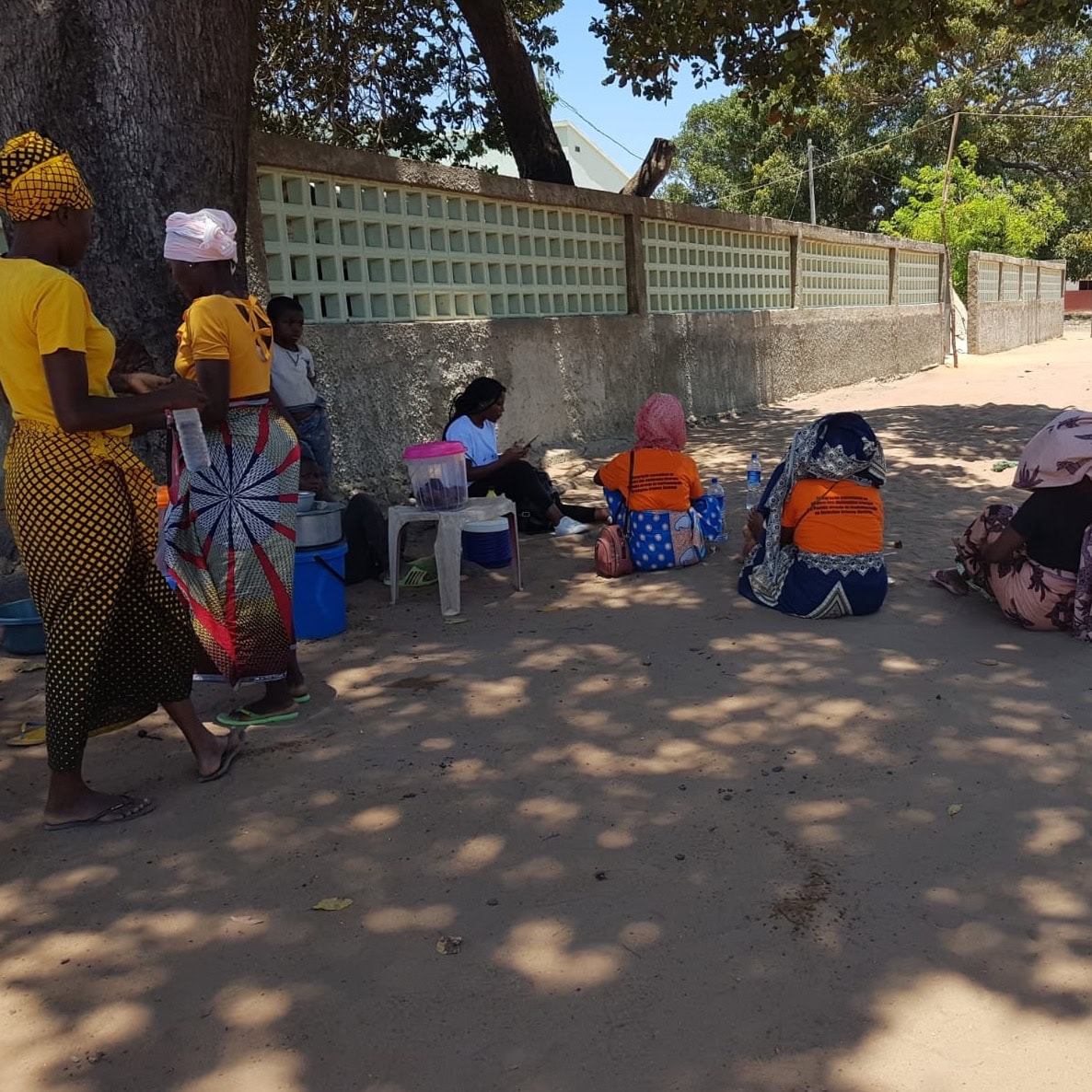
Block 3: Site specific assessment
In-depth participatory planning focused on one specific neighborhood to understand the dynamics between IDPs and host communities. This site-specific assessment was through gender-focus walks of active observation of public spaces in units A and B and resulted in identifying 52 potential areas of interventions. These areas were mapped and their data Geo-referenced.
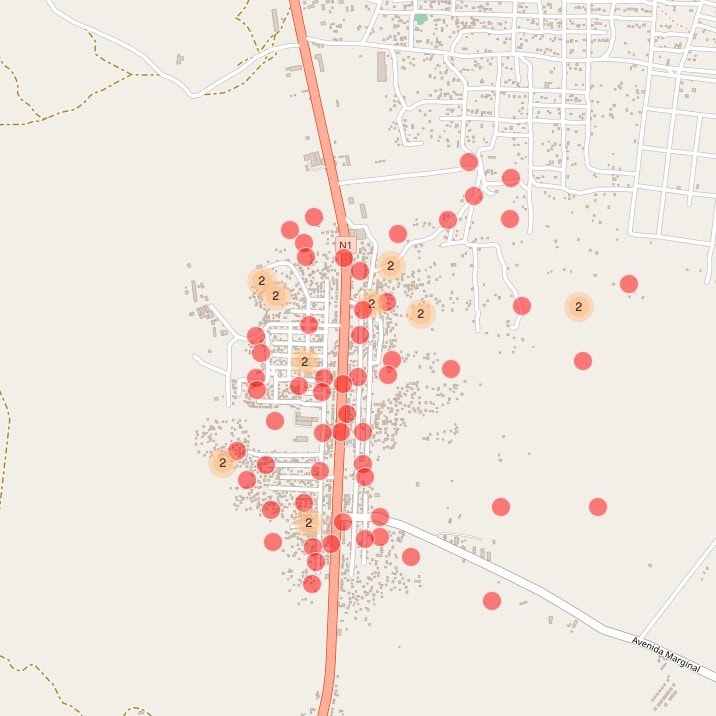
Block 6: Recommendations for action
The findings from the assessment in the diagnosis report informed concrete recommendations for action with key activities to be implemented under the project, including strategies for improving the living conditions of both displaced and host communities. The MHPSS data underscored the need for ongoing psychosocial services, while the protection component led to recommendations for enhancing safety and access to services.
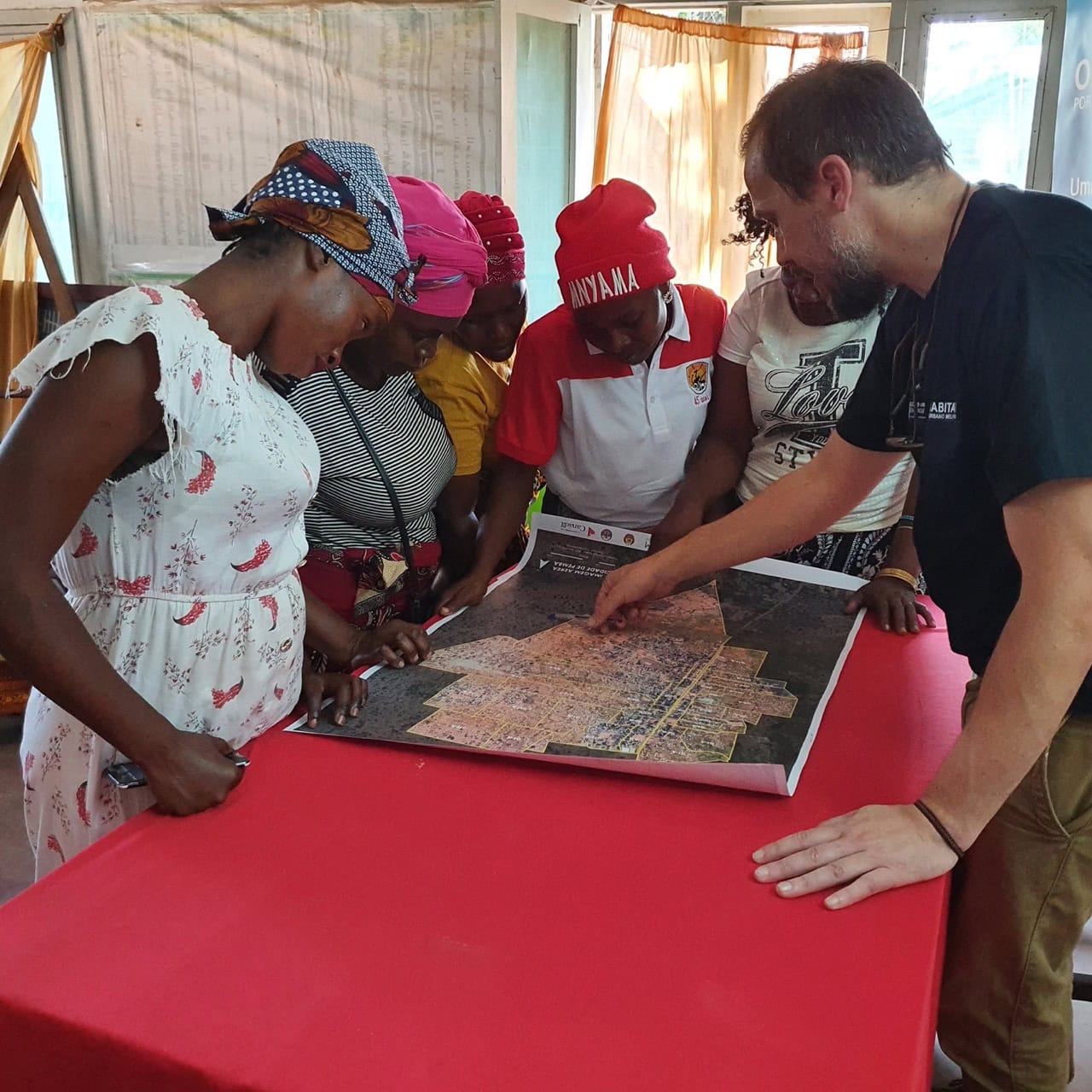
Block 7: Design of action plans
he detailed recommendations identified through the contributions of women and young people from the neighbourhood in a workshop where they analysed and prioritised the interventions that the project could support, guided and enriched the Mahate Action Plan. Nonetheless, this action plan contains recommendations that other relevant actors could support for the development of the neighbourhood.
Related SDGs
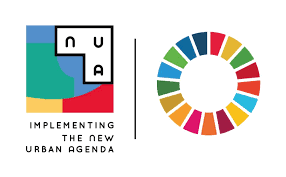
The project relates to the 2030 Agenda Sustainable Development Goals (SDGs) 5, 10, 11, 16 and 17.
About
Contact
hercity@un.org
Follow us
Facebook: @HerCity
Instagram: @HerCityToolbox
Twitter: @HerCityToolbox
YouTube: @HerCity
TikTok: @HerCity
#HerCity
Her City is a joint urban development initiative by UN-Habitat (the United Nations Human Settlements Programme) and Shared City Foundation.